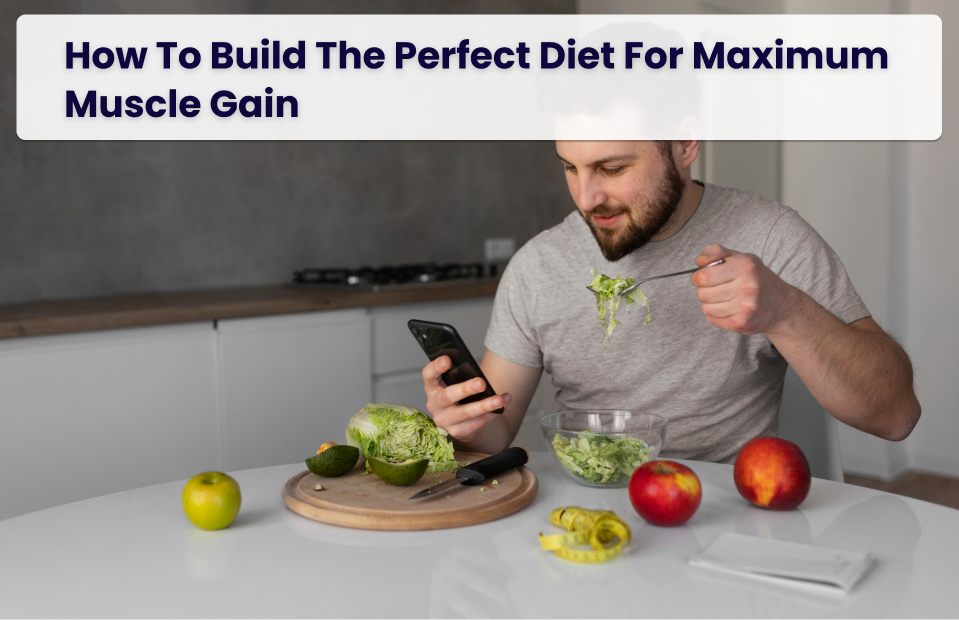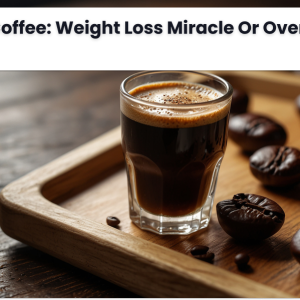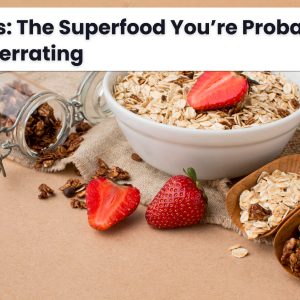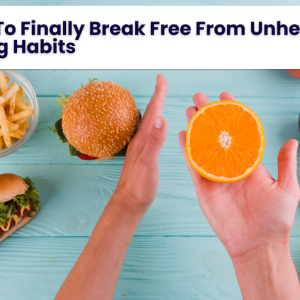
How to Build the Perfect Diet for Maximum Muscle Gain
Building muscle effectively goes beyond lifting weights. Proper nutrition is vital to fuel your workouts, enhance recovery, and support long-term muscle growth. A well-balanced diet ensures that you consume the right amount of calories, macronutrients (protein, carbs, fats), and micronutrients to achieve your fitness goals. Whether you’re starting out or refining your plan, this guide will help you design a diet tailored for muscle gain.
The Importance of Nutrition in Muscle Gain

When you perform strength or resistance training, your muscles experience small tears. Recovery from these tears leads to muscle growth, but this process depends heavily on your diet. Without adequate nutrition, even the most intense workouts won’t yield the desired results. Here’s what you need to focus on:
Understand Your Calorie Requirements
To gain muscle, you need to consume more calories than you burn—a state known as a caloric surplus. Here’s how to determine your daily calorie needs:
- Calculate Basal Metabolic Rate (BMR): Use an online calculator based on your age, gender, weight, and height.
- Factor in Activity Levels: Multiply your BMR by an activity factor:
- Sedentary: BMR × 1.2
- Moderately active: BMR × 1.55
- Very active: BMR × 1.725
- Add Extra Calories: Aim for a surplus of 250–500 calories daily, depending on your muscle gain goals.
Focus on Protein Intake
Protein is essential for muscle repair and growth. The recommended intake for muscle gain is 1.6 to 2.2 grams per kilogram of body weight per day.
Best Protein Sources:
- Lean meats (chicken, turkey)
- Fish (salmon, tuna)
- Eggs
- Dairy products (yogurt, milk)
- Plant-based proteins (lentils, tofu, chickpeas)
Include Adequate Carbohydrates
Carbs provide the energy your body needs to perform and recover. Aim for 3–6 grams of carbs per kilogram of body weight daily.
Best Carbohydrate Sources:
- Whole grains (brown rice, oats)
- Fruits (bananas, berries)
- Legumes (lentils, beans)
Add Healthy Fats
Fats support hormone production and long-lasting energy. They should make up 20–30% of your daily calorie intake.
Best Fat Sources:
- Nuts and seeds (almonds, chia seeds)
- Avocados
- Fatty fish (salmon, sardines)
Stay Hydrated
Water is critical for recovery and performance. Drink 3–4 liters daily, and ensure proper hydration during and after workouts.
Plan Meal Timing
Eating 4–6 balanced meals daily helps maintain a steady nutrient supply. Focus on:
- Pre-workout: Combine protein and carbs for energy.
- Post-workout: Prioritize protein and carbs for recovery.
- Before bed: Opt for slow-digesting proteins like cottage cheese.
Don’t Ignore Micronutrients
Vitamins and minerals support muscle function and recovery. Include foods rich in:
- Vitamin D (fortified dairy, eggs)
- Calcium (leafy greens, milk)
- Magnesium (nuts, seeds)
Sample Balanced Muscle Gain Meal Plan?
Breakfast
- 3 scrambled eggs with spinach
- Whole grain toast
- Small avocado
Snack
- Greek yogurt with berries
Lunch
- Grilled chicken
- Brown rice
- Steamed broccoli
Dinner
- Baked salmon
- Sweet potato
- Roasted vegetables
Bedtime Snack
- Cottage cheese with chia seeds
FAQ for “How to Create a Balanced Diet for Muscle Gain”
1. How many calories should I consume for muscle gain?
To gain muscle, you need to be in a caloric surplus, consuming more calories than your body burns. Aim for a surplus of 250-500 extra calories daily, depending on your goals. You can calculate your calorie needs using your Basal Metabolic Rate (BMR) and adjusting for your activity level.
2. What are the best protein sources for muscle gain?
The best protein sources include lean meats (chicken, turkey), fish (salmon, tuna), eggs, dairy (yogurt, milk), and plant-based options (lentils, tofu, chickpeas).
3. How much protein do I need to build muscle?
The recommended protein intake for muscle gain is 1.6 to 2.2 grams per kilogram of body weight per day.
4. Should I avoid fats while trying to gain muscle?
No, fats are essential for hormone production and provide long-lasting energy. Aim for fats to make up 20-30% of your total daily calorie intake. Healthy fat sources include nuts, seeds, avocados, and fatty fish.





